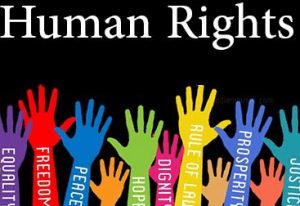Abuses at prayer camps put spotlight on Ghana in 2016 Human Rights report
 Ghana’s “prayer camps” and the human rights abuses that occur in them have been cited by world human rights body Human Rights Watch in its 2016 report.
Ghana’s “prayer camps” and the human rights abuses that occur in them have been cited by world human rights body Human Rights Watch in its 2016 report.
Although the 2016 report says little about Ghana as compared to other countries where serious human rights violations occurred, Human Rights Watch says it documented young children with perceived or actual psychosocial disabilities as young as five years old, being shackled and chained to a tree or wooden post in prayer camps and denied food, water and shelter.
In October 2015, the UN Special Rapporteur on torture and inhuman treatment, Juan Mendez was not impressed when he visited Ghana, and said the country was not doing enough in respect to how persons who have neurological, psychological and psychiatric disorders are treated when they are taken to prayer camps.
“The cruelty of being shackled is not only demeaning and degrading because it is humiliating, but it also may exacerbate their situation in very significant ways,” he said.
The 2016 report which profiles over 90 countries where serious human rights abuses occurred, features 21 African countries; countries such as Egypt, Libya, Mali, Angola, the Democratic Republic of Congo, Kenya and the Central African Republic where many were killed and where UN peacekeepers and staff were found to be involved in sexual abuse.
In Burundi which is perhaps the worst case on the African continent, Human Rights Watch says police used “excessive force” and shot demonstrators indiscriminately, killing and injuring scores of people in the unrest that followed after President Pierre Nkurunziza announced he would seek re-election for a third term.
According to the report government forces, armed opposition groups and unknown assailants killed more than 100 people in the second half of 2015. An estimated 200,000 Burundians fled the country and many journalists, civil society activists and opposition party members remain in exile.
Radio stations were attacked by armed police, a correspondent for Radio France Internationale and AFP, Esdras Ndikumana, was severely beaten for photographing a murder scene, and 10 civil society organizations were suspended and had their bank accounts frozen.
“Police and intelligence agents ill-treated or tortured scores of those arrested, in some cases making them stand on their heads, and beating them with electric cables while naked to force them to admit they were leaving the country to join an armed rebellion,” Human Rights Watch says.
A human rights activist, Pierre Mbonimpa who was very critical of the government’s abuses was seriously injured after being shot in the face by an unknown gunman on a motorcycle, and his son in law and son were later shot dead after they were arrested by police.
By Emmanuel Odonkor
